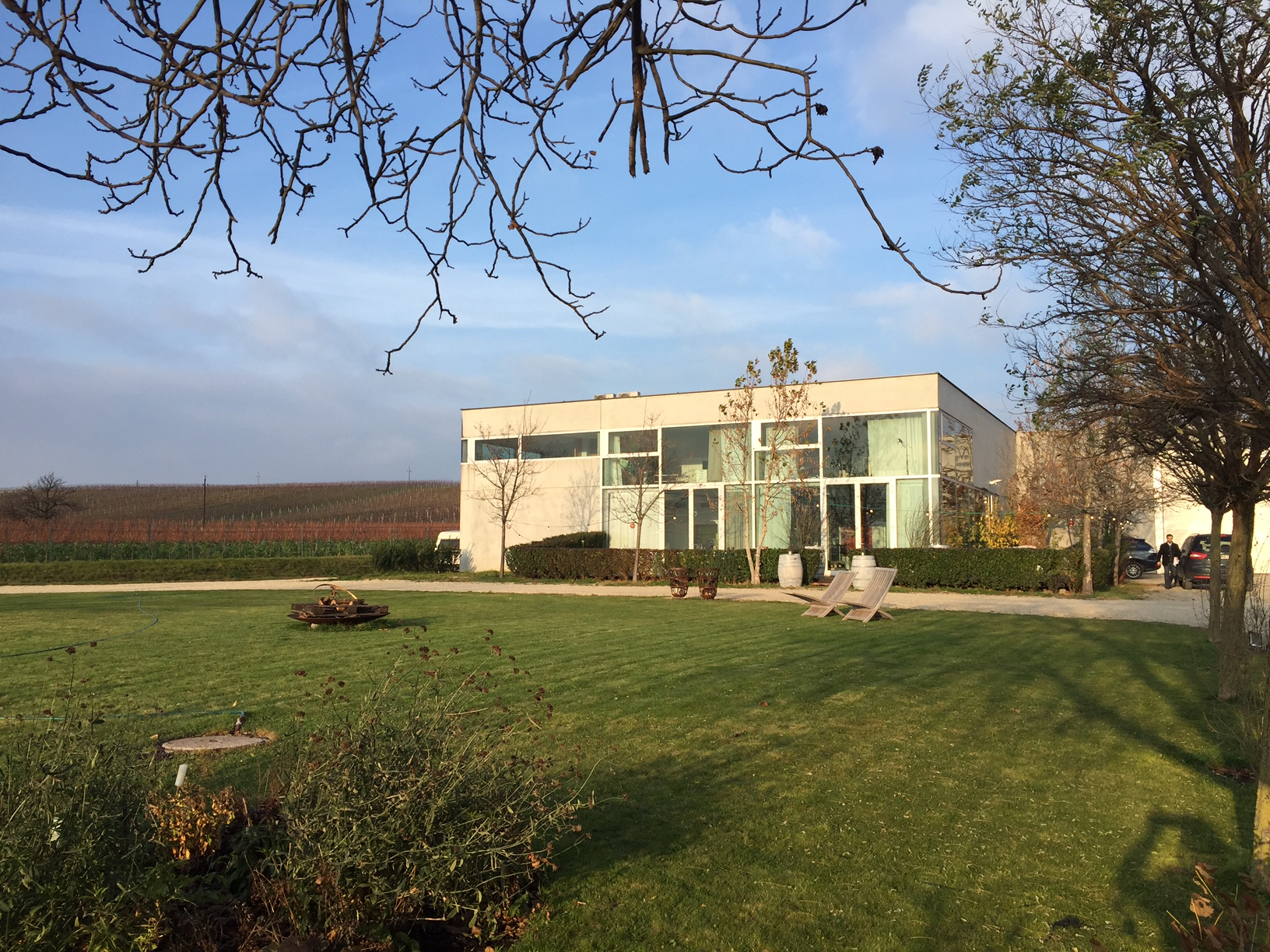Weingut Pittnauer
(Burgenland, Austria)
There is a simple and honest feeling in the wine and spirit of Gerhard Pittnauer which hails from his generosity and humility. Given the reins of his vineyard in the mid-1980’s after the unexpected death of his father, Gerhard, then 18 years old, had to train himself to make wine in the midst of scandal and chaos in the Austrian wine market. He chose to become a student of the broader wine world, and, in realizing the exceptionality of the land he farmed and of the indigenous grapes of the region, allowed himself to experiment with some missteps until he found his thesis. He set forth to ‘grow’ wine rather than to ‘make’ it in the cellar, from the autochtone varietals. He did so without any viticultural doctrine until he found that there was a consistent, common thread in the wines he loved to drink from France and elsewhere. If, he thought, these wines were amazing because of biodynamics, then he must do the same to achieve the pinnacle in his own wine. So he tends 15 hectares, half of which he owns and half of which he rents, alongside his wife Brigitte to create what they call living wines. All work is done manually from composting to pruning. There is no calendar that drives them. Nothing is rushed: they believe in quality over speed. They taste for perfect ripeness, select the cleanest grapes, and begin the wine in the cellar in response to the conditions of the vintage. They do incorporate a bit of modern technology: a pneumatic press, temperature-controlled steel tanks and pumps, all to ensure the purity and freshness of the fruit remains. They are making wines that excite them with the unique voice of the varietal and the deep limestone soils of the terroir speaking clearly. Gerhard and Brigitte are aware of the evolution of their tastes as well as the vineyard’s. They are students presenting the current findings. Not with proud declaration, but with excited experimental energy to get the best of what they have. So far, it is delicious research.
Certified Biodynamic & Organic
https://www.pittnauer.at/
Brut Nature Rose Sekt, 'Himmelhoch'
100% St. Laurent
From 18 year old vines planted to sandy, clay soils with some chalk and red pebbles, the grapes are hand-harvested in early September. Whole-clusters are pressed with stems, followed by spontaneous fermentation for two weeks in stainless steel with temperature control. The wine is matured in stainless steel and spends five years on the lees in the bottle. Unfined and unfiltered, the wine is disgorged in December 2020 with zero dosage.
Burgenland, Dogma Rose
100% Blaufränkisch
From vines grown on soils composed of sand, loam and chalk. The wine spends 10 months in stainless steel. More information coming soon...
Burgenland, Rosé König
80% Blaufränkisch, 10% Zweigelt, 10% St. Laurent
From 18 year old vines planted to a mixture of sandy, loamy and chalky soils. All were hand-harvested in early September, vineyard sorted and de-stemmed before spontaneous fermentation begins and and lasting 2-3 weeks, with temperature control. Aged for 8 months on the lees in stainless steel. Unfined and lightly filtered.
Burgenland, Rosé by Nature
90% Blaufränkisch, 10% Cabernet Sauvignon
From vines planted to loamy chalk soils in the Altenberg, Salzberg and Rosenberg vineyeards. Spontaneous fermentatoin with ambient yeasts, no temperature control and no SO2. The wine is both matured in stainless steel and amphora.
Burgenland, Mash Pitt
35% Sauvignon Blanc, 35% Gruner Veltliner, 20% Chardonnay, 10% Traminer
The vines are planted in rich clay soils and come from two main vineyards: Lichtenberg-Rosalia & Altenberg-Gols. Maceration lasts for 20 days, followed by spontaneous fermentation and then allowed to age for 8 months in amphora (1000L) before bottling. Unfined and unfiltered.
Burgenland, Perfect Day
54% Muskat Ottonel, 29% Sauvignon blanc, 8% Chardonnay, 4% Gelber Muskateller, 5% Traminer
The vines are planted in heavy clay soils of the Altenberg (Gols) vineyard, are hand harvested in September and undergo intensive sorting. Spontaneous fermentation with natural yeasts under temperature control and then aged in barrique for 8 months.
The Sauvignon Blanc and Chardonnay were co-fermented in an open vat for 14 days on skins, while Muskat Ottonel only stayed 3 days on the skins. The Traminer spent 20 days in amphora on skins and the Gelber Muskateller was pressed after a short time of maceration. After having been aged separately in amphoras and old oak for half a year, the four wines were merged right before bottling.

Burgenland, ‘Pitti’
60% Zweigelt, 40% Blaufränkisch
The ‘Pitti’ is a blend coming from 18 year old vines planted to sandy clay mixed with limestone. The Zweigelt is hand-harvested in mid-September while the Blaufrankisch is done in early October; all de-stemmed with two weeks of maceration. Each grape is fermented spontaneously separately in steel with natural yeasts for 10-14 days. The wine spends 12 months aging in steel and old oak and then is blended. Unfined and lightly filtered before bottling.
Burgenland, ‘Pittnauski’
40% Blaufrankisch, 25% Zweigelt, 20% St. Laurent, and 15% Merlot
Originating from the best vineyards - Rosenberg, Altenberg and Ungerberg - and based on Blaufrankisch as the lead with Zweigelt, St Laurent and Merlot supporting. The grapes undergo spontaneous fermentation with wild yeasts and treated in the same way as the Pannobile. Aging in old oak for 2.5 years and 6 months in stainless steel. Unfiltered.









